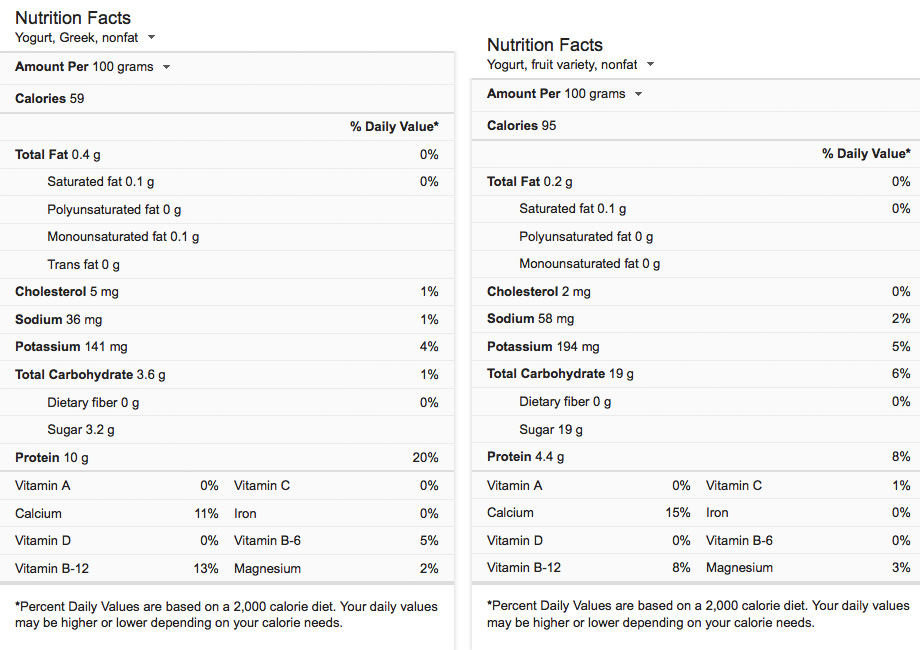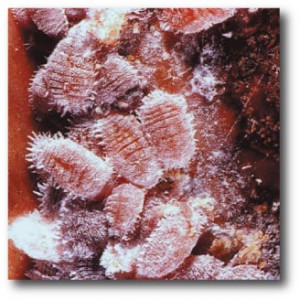Dear Davey,
I’ve seen a lot about Greek yogurt being very healthy. Is it all marketing hype or is Greek yogurt really better for you than regular yogurt?
From,
Sean
For the most part, people think of yogurt as a healthy option. But the truth is, not all yogurts are created equal.
For illustrative purposes, let’s compare 100 grams of nonfat fruit yogurt to 100 grams of nonfat plain Greek yogurt (see click-able chart).
As it turns out, the nutritional differences are substantial. With 95 calories, fruit yogurt is far more energy-dense than nonfat plain Greek yogurt. Even more shocking is the amount of sugar. The 19 grams of sugar in fruit yogurt converts to nearly 5 teaspoons! Compare that to the 2.3 grams of sugar in plain Greek yogurt. There’s also a substantial difference in protein content. While the 4.4 grams of protein in fruit yogurt isn’t shabby, plain Greek yogurt has a solid 10 grams.
Hands down, nonfat plain Greek yogurt is the healthiest yogurt option. From a nutritional standpoint, it’s a huge improvement over other yogurt variations - especially when it comes to calories, added sugar and protein.
As a general rule, only buy plain yogurt - regardless of your preference for regular or Greek yogurt. Fruit yogurts almost always have added sugar. In fact, the second ingredient listed in Dannon Fruit on the Bottom yogurt is sugar. If you want some sweetness in your yogurt, add a few berries or a slice or two of fruit.
The bottom line is that nonfat plain Greek yogurt is, in fact, healthier than the other yogurt variations.
Love,
Davey
P.S. For more information about improving the way you look and feel through the foods you eat, download Davey Wavey’s Insanely Easy Guide to Eating Smarter!










